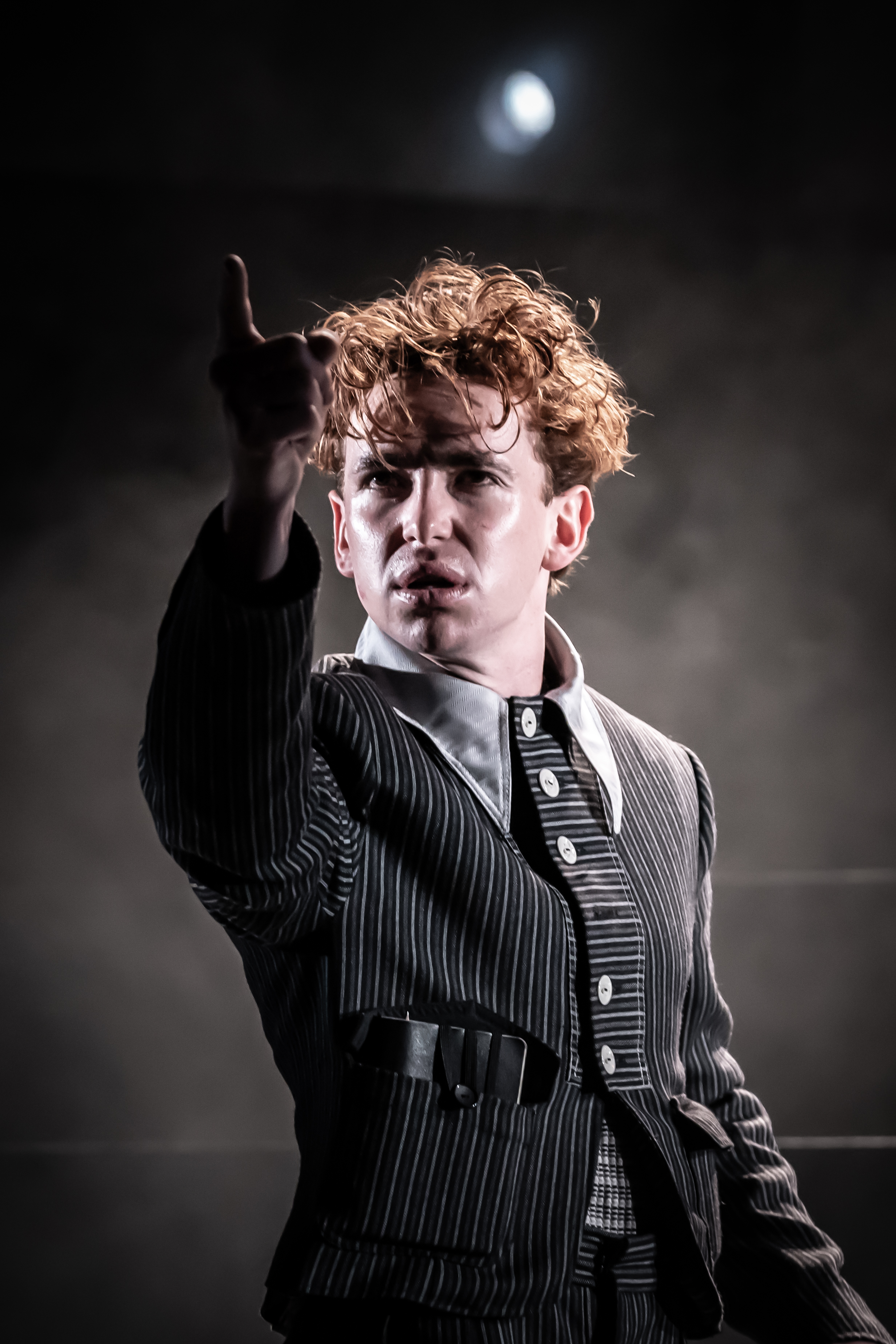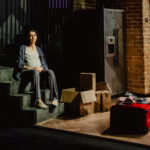What a brilliant yet awful time to be an advocate of London theatre. Awful because almost every theatre in London is closed, has closed or will close because of the current rise in Covid cases, and brilliant because, should you chose to venture out, there are a number of sensational productions where you can spend an evening enthralled by the magic of theatre.
There is the unmissable Cabaret starring Eddie Redmayne and Jessie Buckley, James Graham’s new play Best of Enemies at the Young Vic, the RSC’s riotous The Comedy of Errors at the Barbican and, now, this revival of Spring Awakening at the Almeida Theatre vies for your attention too. There may have been others amongst them; both Hex at the National and Force Majeure at Donmar Warehouse have been forced to postpone their openings until the New Year – you won’t know what you could be missing until then.
But what puts Spring Awakening in the sensational category? Simply, it is the combination a furious book and score by Steven Sater and Duncan Sheik, the best of Britain’s young theatrical talent, Rupert Gould’s visceral direction, an ingenious set design by Miriam Buether and Lynne Page’s, shall we say ‘sometimes suggestive’, choreography. It is a sublime piece of theatre full of shades of light and dark.
 |
| The cast of Spring Awakening. Photo: Marc Brenner |
The musical follows a group of teenagers who are discovering their adolescent sexuality and the ties that bind them in a controlling and censorious 19th century German society. At the centre of the play is the precocious, apostate Melchior (Laurie Kynaston), his love interest Wendla (Amara Okereke) and his troubled friend Mortiz (Stuart Thompson), as well as their wider circle of classmates and friends and the authority figures that repress them. It’s a piece that explores challenging themes, and has a content warning list that is as long as any you’ll see – sex and sexuality, suicide, abortion and child abuse all put under the microscope, but the themes are well handled by the young cast under Gould’s direction.
Following acclaimed performances in The Ferryman and The Son, Laurie Kynaston’s performance as Melchior gives further proof of his standing as one of best, perhaps even the best, of the current crop of young British theatrical talents. He expertly balances the character’s contradictions, his self-confidence and underlying vulnerability, and his guilt when he momentarily loses himself to sadomasochism. Alongside him Okereke delivers a gentle, understated performance as the innocent Wendla – her voice his pure and disarming; light in the darkness.
Such is their portrayal of the relationship between Melchior and Wendla that we feel like voyeurs on this young love as they encircle and entwine with each other during The Word of Your Body. That feeling is only heightened by Buether’s staging; the hayloft they later embrace in is a glass box through which we witness them throwing off the shackles of sexual repression – voyeurs indeed.
Thompson’s sensitive and lost Mortiz is truly touching, with a soft Northern accent adding to his gentle aura. It is an incredibly ‘real’ performance – I have met boys like him, weighed down by the expectations of parents and teachers and feeling like the entire world is on their shoulders.
There are strong performances across the ensemble too – Joe Pitts, in his theatrical debut, seems to use his voice like an instrument, such is the total control he appears to hold over it, and Nathan Armarkwei-Laryea’s hilarious take on Hanschen gives light as a foil against the dark themes of the play. His masturbation scene is laugh out loud funny and involves the best audience involvement in a play I have ever seen (words I though I’d never say). We will be talking about this cast for years to come.
 |
| Laurie Kynaston. Photo: Marc Brenner |
What is even more impressive amongst the cast is their ability to expertly manage the vocals and choreography on a stage that is comprised of ten steep steps up to a glass wall that transforms from opaque to transparent glass, as the scene requires it. Their movement across the stage seems almost impossible at times and, to an onlooker, dangerous – it is awe-inspiring.
Amongst it all, in two a capella moments the entire cast demonstrate their vocal power in goose-bump-inducing fashion, most notably on Totally Fucked where the entire cast stand in single file across the breadth of the stage, standing almost in the audience and delivering the song’s ‘blah, blah, blah, blah, blah, blah, blah, blah’ refrain directly at us, in what almost feels like a challenge to the audience – are we their oppressors too? It is like the musical’s version of a Haka.
The emo touches of the score are accentuated in the costume design by Nicky Gillibrand – it does feel part 19th century, part modern but some inspiration must have come too from My Chemical Romance’s The Black Parade.
The production plays at the Almeida until 22 January but it deserves to see life beyond that deadline. In ordinary times I would have thought a West End transfer was guaranteed, and a Broadway stint not out of the question. In the unpredictable climate we are living in, where it is only after the cast and crew have completed their daily lateral flow tests, and spent a nervous 15 minutes waiting for the results, that we know for certain whether that night’s show is going ahead, it may be a while before this young cast get what they deserve.
Spring Awakening is at the Almeida Theatre until 22 January.














